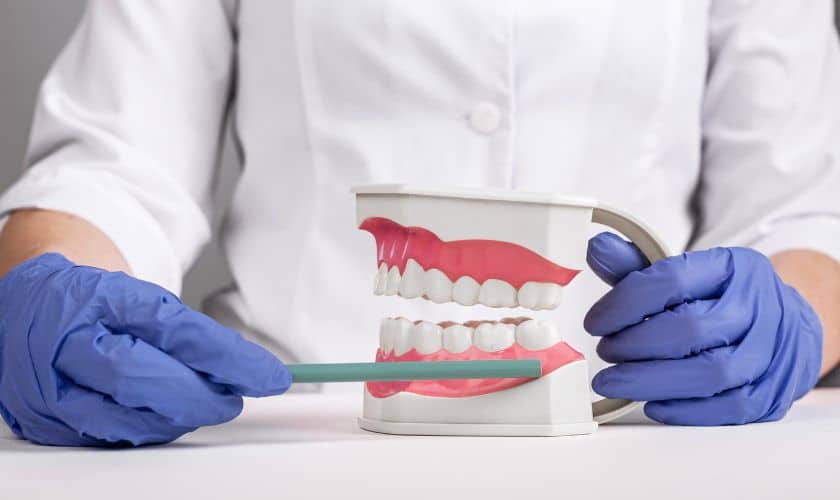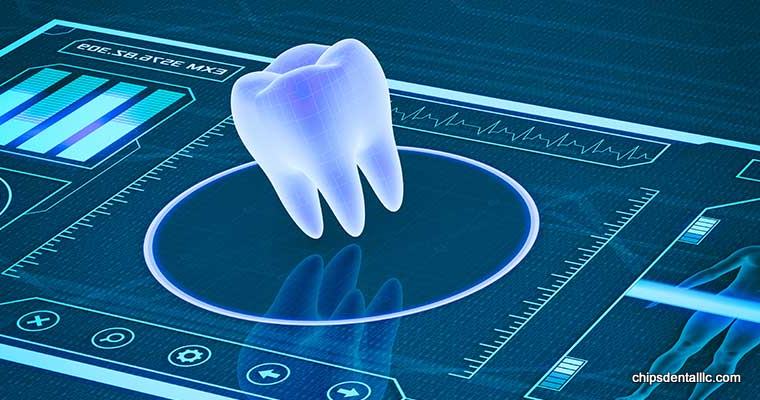The future of dentistry technology promises advancements in digital dentistry and smart dental devices. Patient care is set to improve with augmented reality, 3D printing, and tele dentistry.
Dentistry is on the brink of a technological revolution that aims to make patient experiences less daunting and more efficient. Advances in digital imaging and diagnostic tools are enabling dentists to detect issues with unprecedented precision. The integration of 3D printing technology allows for the rapid creation of dental implants and custom fixtures, streamlining the prosthetic process.
Patients stand to benefit from less invasive procedures and quicker recovery times due to innovations in laser dentistry and robotic assistance. Teledentistry is expanding access to dental care, allowing for remote consultations and follow-ups. Wearable devices and smart toothbrushes are contributing to personalized oral healthcare, while AI is enhancing decision-making and treatment planning. These technological trends pave the way for a more accessible, precise, and comfortable dental care experience, catering to the growing expectations of informed patients.

Credit: www.kirklandpremierdentistry.com
The Digital Revolution In Dentistry
Dentistry is waving goodbye to traditional methods. Technology now leads the way. Innovations are transforming patient experiences. They make treatments faster, more accurate, and less painful.
Rise Of 3d Printing For Prosthetics
3D printing is a game-changer. It allows custom prosthetics to be made on-demand.
- Higher Precision: Tailored to the patient’s exact needs.
- Quick Production: Dental devices ready in hours, not days.
- Cost-effective: Less material waste, lower cost.
Patients can now receive perfect-fit implants and crowns swiftly.
Teledentistry And Virtual Consultations
Remote dental care is here. Teledentistry connects patients with dentists from home:
| Benefits of Teledentistry |
|---|
| Convenience |
| Access to Care |
| Reduced Costs |
Virtual consultations save time. They bring expert advice straight to your screen.

Credit: myrobstowndentistry.com
Advancements In Diagnostic Tools
The horizon of dental care is shifting rapidly with technological advancements. Cutting-edge diagnostic tools have transformed the way clinicians approach dental health. These innovations provide enhanced accuracy, better patient comfort, and quicker diagnosis times, leading to earlier treatment and improved outcomes for patients.
Intraoral Cameras And Digital X-rays
Dentists now harness the power of intraoral cameras and digital X-ray systems to get a clearer view inside a patient’s mouth.
- Intraoral cameras offer real-time visuals of a patient’s mouth in high definition, allowing for better patient education and more precise diagnosis.
- Digital X-rays use less radiation than traditional film and provide immediate images for analysis, speeding up the diagnostic process.
These tools not only make check-ups less invasive but also boost diagnostic accuracy. Dentists can now detect issues early and plan effective treatments.
Ai For Precision In Diagnoses
Artificial intelligence (AI) is set to revolutionize dental diagnostics. With AI-powered tools, dentists can identify patterns and anomalies sometimes missed by the human eye.
- AI technology compares dental imagery against vast datasets, ensuring a comprehensive analysis of oral health conditions.
- AI’s precision leads to better treatment planning and a decrease in diagnostic errors.
- AI systems learn continuously, enhancing their diagnostic capability with each new case.
As AI integrates deeper into dental practices, patients can expect highly accurate and personalized dental care based on predictive analytics.
Innovations In Treatment Procedures
The dental industry continues to revolutionize how we care for our teeth, with state-of-the-art innovations in treatment procedures leading the charge. These groundbreaking advancements not only enhance precision and success rates but also offer patients comfort and speed during their visits to the dentist. Let’s explore some of the most exciting technologies reshaping dental care today.
Laser Therapy For Less Invasive Surgeries
Laser therapy represents a significant leap forward in dental surgery techniques. With its pinpoint accuracy, it allows dentists to perform procedures with minimal discomfort and faster healing times. Here’s why laser therapy is a game-changer:
- Reduced pain: Lasers can minimize the need for anesthesia.
- Accuracy: They target specific areas without affecting the surrounding tissues.
- Less bleeding: Laser treatments often cause less bleeding than traditional surgery.
- Quick recovery: Patients typically experience quicker recovery periods.
Robotics In Orthodontics And Implantology
Robotics is transforming orthodontics and implantology, offering more reliable and efficient treatments. Here’s how robotics is impacting these fields:
| Orthodontics | Implantology |
|---|---|
|
|
Enhancing Patient Comfort And Experience
The future of dentistry focuses on not just the health of your teeth, but also on how you feel during your visit. New technologies aim to make trips to the dentist stress-free and comfortable. From pain-free injections to advanced learning about your dental health, these advancements promise an upgraded dental experience for every patient.
Pain-free Needle Technologies
Needles can be scary, but dental visits won’t be anymore. Innovative needle technologies are being developed to provide painless injections. This means less anxiety for patients and a more pleasant experience overall.
- Computer-assisted anaesthesia: Delivers local anaesthetic at the right pace.
- Vibrating needles: Tricks the brain, reducing needle sensation.
- Micro-needles: Minimally invasive and hardly felt.
Augmented Reality For Patient Education
Understanding treatments is now easier and interactive. Augmented reality (AR) uses digital images to show you what your dentist sees. You can learn about your teeth in a fun way. This helps in making informed decisions about your dental care.
| AR Features | Benefits for Patients |
|---|---|
| 3D tooth models | See detailed teeth structures. |
| Procedure simulations | Preview treatment effects. |
| Game-like tutorials | Engage and learn dental care. |
Challenges And Ethical Considerations
Welcome to the intriguing world of dentistry’s future. Advanced technologies are paving the way for groundbreaking treatments and diagnostics. But, with innovation comes responsibility. We must carefully consider the challenges and ethical implications of these advancements.
Navigating Data Security In Dentistry
Digital dentistry involves a lot of patient data. Keeping this information safe is crucial. Hackers are a threat to these confidential records. Dental practices must strengthen their cyber defenses. This protection ensures patient trust.
- Regular software updates to fend off cyber threats
- Employee training on data security protocols
- Secure storage solutions for patient data
Ethical Implications Of Ai Integration
The use of AI in dentistry is growing. It can diagnose and even predict dental issues. But, we must use this power wisely. AI’s decisions impact real people’s lives.
Patients deserve transparency. They need to know if AI is part of their care. Dentists must ensure that AI complements, not replaces, their expertise. They must maintain a human touch in their practice.
| AI Use | Benefits | Ethical Concerns |
|---|---|---|
| Diagnosis | Fast and accurate | Data privacy |
| Treatment Planning | Personalized care | Reliance on technology |
| Predictive Analytics | Preventive strategies | Accuracy in diverse populations |
We must use AI ethically. We need guidelines to ensure AI benefits everyone fairly. We must remember that AI tools are just helpers. The dentist’s judgment is still key.

Credit: emag.medicalexpo.com
Frequently Asked Questions For Future Of Dentistry Technology
What Is Digital Dentistry?
Digital dentistry refers to the use of digital technologies in dental practices, enhancing precision, efficiency, and patient outcomes through tools like CAD/CAM systems, digital imaging, and 3D printing.
How Will Ai Impact Dental Treatments?
Artificial Intelligence (AI) will revolutionize dental treatments by improving diagnostic accuracy, personalizing treatment plans, and automating routine tasks for dental professionals.
Are Teledentistry Services Becoming More Common?
The rise of teledentistry is expanding access to dental care, allowing patients to receive remote consultations and preliminary assessments, making dental advice more accessible to those in remote or underserved areas.
Conclusion
Embracing the advancements in dental technology promises a brighter, more efficient future for oral health care. As we continue to innovate, patients and practitioners alike can expect enhanced accuracy, comfort, and results. The intersection of technology and dentistry is evolving, positioning us on the brink of a new era in medical science, one where smiles are healthier and treatments are smarter.
With these advancements at our doorstep, the potential for transformative dental care has never been more exciting.

